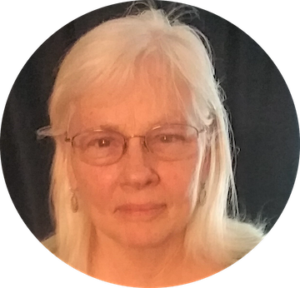March 2, 2021
by Suzanne Jones, Partnership Community leader
 I live in a small town with about 10,000 people. The folks here are polite, kind, and everywhere you go, you receive hugs. It is a great place to live. After living here for a while, though, I began to notice that, while people were definitely polite and kind, they did not understand how to communicate in ways that deeply connect people to one another. This is not uncommon in most cities, but it stood out more here because the people were all so nice.
I live in a small town with about 10,000 people. The folks here are polite, kind, and everywhere you go, you receive hugs. It is a great place to live. After living here for a while, though, I began to notice that, while people were definitely polite and kind, they did not understand how to communicate in ways that deeply connect people to one another. This is not uncommon in most cities, but it stood out more here because the people were all so nice.
I moved North about nine years ago after many years living in the Southwest United States. There I studied and shared a type of communication called Nonviolent Communication (NVC), also known as Compassionate Communication. NVC guides us to share our feelings and needs with others, rather than just our thoughts, to create a much deeper connection with one another. As soon as I arrived at my new home, my NVC skills were unexpectedly utilized as the Occupy Movement was in full swing and there was a large group of people here supporting it.
After finishing graduate school, the year before, I wondered how I would use my education in Communication Studies. With what I learned at school, and the experience I had gained practicing NVC, I quickly saw myself moving in the direction of community engagement and community resilience building.
At the end of the year, I connected with the local Occupy Movement group in my town, and I began to facilitate a daily empathy call that drew in many people who were at Occupy Movement encampments around the United States and Canada. Within a couple of years, I joined the local Transition Town group (The Transition Town Movement was created in 2006 by a perma-culturist who was advocating for the creation of locally sustainable towns to help us reduce our dependency on fossil fuels). The group here consists of a steering council that acts as a hub for 10 Action Groups. As part of the Resiliency of Heart Action Group, I began to offer NVC to the community.
Compassionate Communication helped people put their needs on the table in ways that created deep connection.
I started teaching classes at a local church. This led to a series of classes with an intentional community in the area. I was also invited by a local psychologist to co-facilitate a series of classes with some trusted clients. In these classes, many people made some big changes. Everyone was still kind and polite, but they were also sharing more of themselves with one another, becoming more vulnerable to one another, and putting their needs on the table in ways that created deep connection.
My connection to the Transition Town group also opened an opportunity to write articles for the local newspaper. In these articles, I discussed Compassionate Communication concepts and strategies. Each time an article was published, I would run into people around town who would tell me how much they liked what I was writing about.
After a few years of just putting the information out, the people here are still kind and polite, but now many of them tell me they are connecting with their families and their friends in a more vulnerable way. They are creating deeper, more fulfilling connections. Quite a ripple effect, I would say.
For the past 27 years, Suzanne Jones has studied and taught the value of sharing our feelings and needs with one another. Since receiving a Master’s degree in Communication Studies in 2009, she has shared her research and experience with teachers, organizational leaders, and business owners in 18 countries. She currently teaches and writes about the art of Compassionate Communication.



I appreciate seeing how social change can come about by starting where people are and inviting a new awareness of feelings and needs and how to attend to them by learning to safely share more of ourselves. I am grateful to Suzanne Jones for reaching out to her community and its goals.
Thank you Helen,
Much appreciated!
-Ann Amberg
Co-Director, CPS Communications